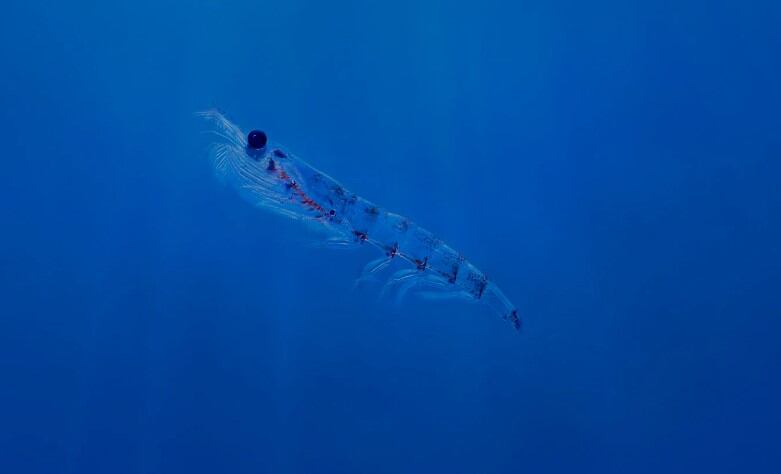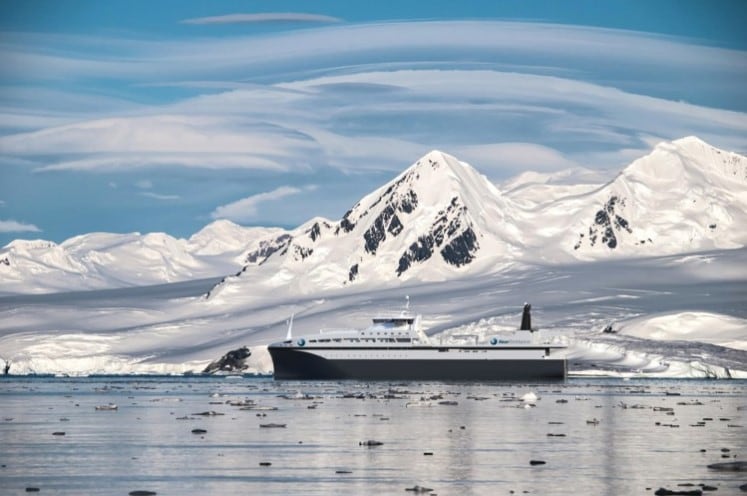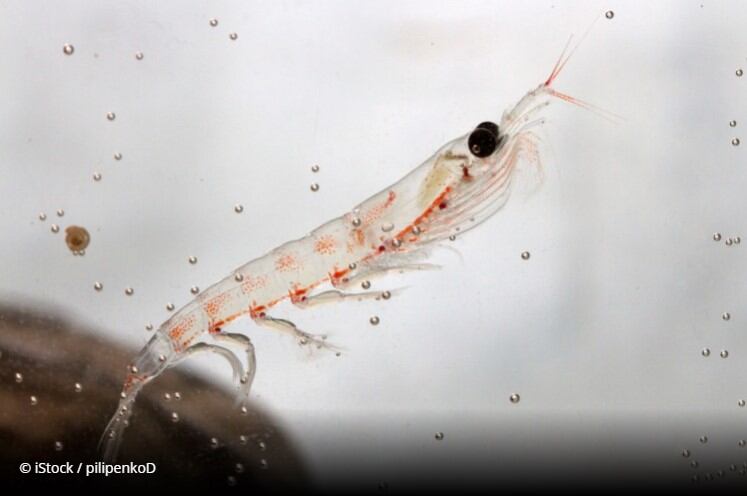In a webcast presentation by the Antarctic krill-harvesting firm, its CEO Matts Johansen, also revealed plans to use green ammonia to power company vessels to support the reduced emissions goal.
In keeping with the firm’s adoption of the latest technology, Aker also revealed it had already deployed a zero-emission ocean drone to minimise the time needed to search for krill.
“We consider ourselves pioneers at Aker BioMarine, which for us means that we want to lead our industry in a more sustainable direction,” says Johansen.
“As a company, we make no excuses when it comes to meeting our targets. We are forging a new and more planet-friendly path, tackling challenges, embracing technology, and making more sustainable choices than ever done before in our industry.”
Known as a Sailbuoy, the drone is able to operate independently and indefinitely and was developed by Offshore Sensing. Its primary function is to aid Aker’s harvesting vessels find suitably dense krill swarms more efficiently.
Aker’s sustainability commitments follows similar moves amongst other krill harvesters looking to address environmental concerns in an industry accused of damaging wildlife and protected ocean areas in the past.
Krill harvester actions
At the start of last year, fellow Norwegian krill processor Rimfrost awarded a €100m (NOK 1bn) contract to Westcon to build a new krill fishing vessel that enables the production of food supplements at sea immediately after catching.
Norway-based ship-building contractors Westcon are committed to constructing the 120-metre-long vessel, which is said to achieve new environmental and sustainability standards in energy efficiency.
Alongside Aker and Rimfrost and further afield, Chinese state-owned CNFC, Insung, Pescachile—around 85% of the krill fishing industry in the Antarctic—agreed to join the Association of Responsible Krill harvesting companies (ARK) back in 2018.
The agreement, brokered by Greenpeace, intends to hold the industry to account and commits the firms to stop fishing in sensitive Antarctic waters that alongside krill, house breeding colonies of penguins.
“These sustainability goals support our overall purpose – to improve human and planetary health – and make this purpose even more tangible,” adds Johansen.
“Every single person working in Aker BioMarine is involved in achieving these goals, and we will work across the company’s entire value chain to make sure we lead the way to a net zero end.”
In further explaining Aker’s use of green ammonia for its vessels, the firm’s Sustainability Manager Christina Ianssen, adds, “Green ammonia is the most promising sustainable fuel for the shipping industry.
“It is essential that the industry tests and develops solutions for ammonia on a large scale. This will make it possible not only for Aker BioMarine, but also for Norwegian suppliers and renewable companies, to be world-leading on greener solutions for a broad range of sectors.”
Antarctic Provider
Aker revealed that its newest support vessel, Antarctic Provider, will achieve half the fuel consumption per unit krill meal than the support vessel it replaces, La Manche, reducing Aker’s overall carbon footprint.
It achieves this via hybrid propulsion system that is combined with a Wärtsilä 31, four-stroke diesel engine that is said to be fully convertible for future greener fuels.
Aker have also signed off more sustainability commitments that include tackling lifestyle diseases by delivering 5bn doses of health promoting nutrients annually as well as developing products that play roles in sustainable diets and the future food system.
The Oslo-based firm has also committed to maintaining, “unconditional Marine Stewardship Council (MSC) certification and ensuring transparency in vessel operations”.




